★★½
“The bigger they come…”
 The first Giantess Attack! movie was an unexpected guilty pleasure: while obviously low budget, it had no pretensions and an undeniably goofy charm that, at least for me, helped paper over the cracks and microscopic resources. The end of it teased this very movie, and most of the main players have delivered on that promise. Can lightning strike twice? The answer is… not quite. Even at a crisp 67 minutes, it still feels like there is a lot of padding, with recycled footage and elements that go on, after their amusement value has expired. That said, it ends in another impressive giant battle, and still contains some genuinely amusing moments.
The first Giantess Attack! movie was an unexpected guilty pleasure: while obviously low budget, it had no pretensions and an undeniably goofy charm that, at least for me, helped paper over the cracks and microscopic resources. The end of it teased this very movie, and most of the main players have delivered on that promise. Can lightning strike twice? The answer is… not quite. Even at a crisp 67 minutes, it still feels like there is a lot of padding, with recycled footage and elements that go on, after their amusement value has expired. That said, it ends in another impressive giant battle, and still contains some genuinely amusing moments.
Frida (Riley) and Diedre (Tacosa) have split after the events of the first film: the latter has vowed never to become a giantess ever again, and has retreated to her “Fortress of Immeasurable Guilt” to build popiscle-stick models. Frida pays her a visit, and they end up in what can only be described as a cat-fight version of the famous brawl from They Live, over Diedre’s refusal to put on glasses. However, the main threat is the surviving Metaluna twin (Nguyen) from the first movie, who is plotting revenge on Earth. To that end, she kidnaps a scientist, miniaturizes him and forces him to make the mecha-fembot of the title, which goes on the rampage through LA. The only hope is our two heroines, though before they can save the city, the duo first need to reconcile.
There can’t be many movies which open with a Katey Sagal impersonator, but here’s one. It follows with a brutal parody of those cloying, guilt-ridden Sarah McLachlan ASPCA commercials, which is spot on, and resurfaces as a bit of a running joke thereafter. Then, however… the film kinda loses its direction and energy for much of the first half. The sequence where the scientist ends up in Metaluna’s lair, for example, is excruciatingly over-stretched. The same goes for Frida’s ascent up to Diedre’s fortress, where the sole element of humour is that she goes mountain-climbing in go-go boots. Some sequences definitely feel more aimed at the fetish crowd, of whom I am not one.
Once the robot is built – I confess, I did laugh at the supposed method of activation – and unleashed, things become a lot more fun. For we get what we came for, which is cheesy, OTT and completely ridiculous F-sized action. It’s a mix of model work, CGI and green-screen, all done with more enthusiasm than actual resources, yet remains the kind of film-making for which I have an odd affection. Much of Los Angeles is, indeed, destroyed, and our heroines are sentenced to 9,000 hours of community service as a result. Naturally, a third entry is teased, accompanied by the outrageously English accent of the eye-patch wearing “Nicky Fury”. Even if this sequel was a little weaker, I still cannot stop myself from looking forward to: Giantess Attack… In Space!
Dir: Jeff Leroy
Star: Tasha Tacosa, Rachel Riley, Christine Nguyen, Vlada Fox





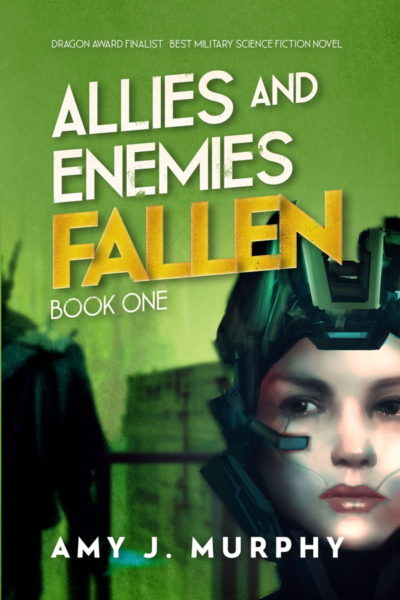 It’s a little hard to explain the universe in which this takes place. Humanity existed. However, their encounter with other races proved problematic for a variety of reasons, and led to them being exterminated, a genocide that was partly collateral damage in a war between the human-adjacent Eugenes and the definitely not Sceeloids. The former have a severely class-based society, where the lower-tiers are bred specifically to be soldiers, for example. One such “breeder” is Sela “Ty” Tyron, though she differs from the rest of her platoon in a couple of important ways. Firstly, her son is part of her group – though he doesn’t know it, having been removed from her care on his birth. His death (at the very beginning of the book, so not much of a spoiler) causes Ty to question everything she has believed about society, and her place in it.
It’s a little hard to explain the universe in which this takes place. Humanity existed. However, their encounter with other races proved problematic for a variety of reasons, and led to them being exterminated, a genocide that was partly collateral damage in a war between the human-adjacent Eugenes and the definitely not Sceeloids. The former have a severely class-based society, where the lower-tiers are bred specifically to be soldiers, for example. One such “breeder” is Sela “Ty” Tyron, though she differs from the rest of her platoon in a couple of important ways. Firstly, her son is part of her group – though he doesn’t know it, having been removed from her care on his birth. His death (at the very beginning of the book, so not much of a spoiler) causes Ty to question everything she has believed about society, and her place in it.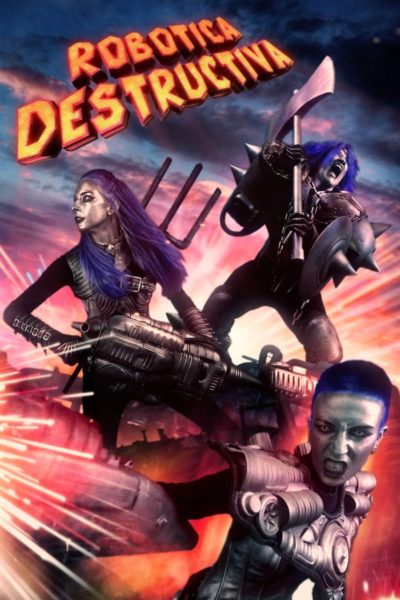 To bring out one of my go-to phrases, if I was eleven years old, and hopped up off my face on candy-floss, this would probably be one of my favorite movies. Instead, it’s the kind of film which apparently caused my brain to shut off as some kind of defense mechanism. I’m not kidding. Ten minutes into my first viewing attempt, I suddenly fell asleep. I think my mind may have experienced the cerebral equivalent of a blue screen of death and ran out of memory, forcing a shutdown. For this is just an insane overload of a movie, all the more so considering it was a labour of love, assembled over a period of multiple years.
To bring out one of my go-to phrases, if I was eleven years old, and hopped up off my face on candy-floss, this would probably be one of my favorite movies. Instead, it’s the kind of film which apparently caused my brain to shut off as some kind of defense mechanism. I’m not kidding. Ten minutes into my first viewing attempt, I suddenly fell asleep. I think my mind may have experienced the cerebral equivalent of a blue screen of death and ran out of memory, forcing a shutdown. For this is just an insane overload of a movie, all the more so considering it was a labour of love, assembled over a period of multiple years.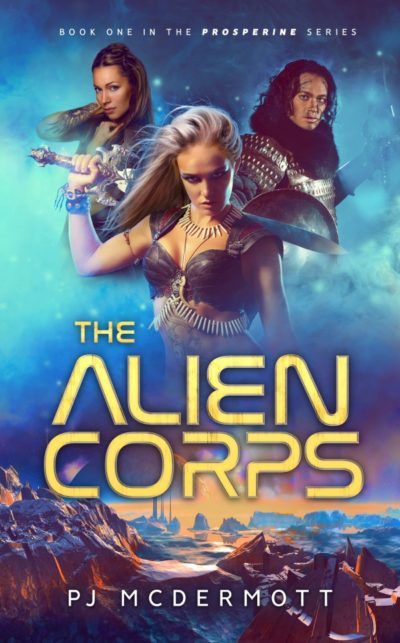 If you’re even slightly familiar with the Star Trek universe, you’ll be aware of the Prime Directive. While never explicitly stated, it’s the rule which prohibits interfering with the development of less technologically advanced civilization, in particular those that are not capable of space travel, or are unaware of the existence of life beyond their own planet. It’s a key concept in this book too, though is meshed together with a religious theme – not something often found in this kind of science fiction.
If you’re even slightly familiar with the Star Trek universe, you’ll be aware of the Prime Directive. While never explicitly stated, it’s the rule which prohibits interfering with the development of less technologically advanced civilization, in particular those that are not capable of space travel, or are unaware of the existence of life beyond their own planet. It’s a key concept in this book too, though is meshed together with a religious theme – not something often found in this kind of science fiction.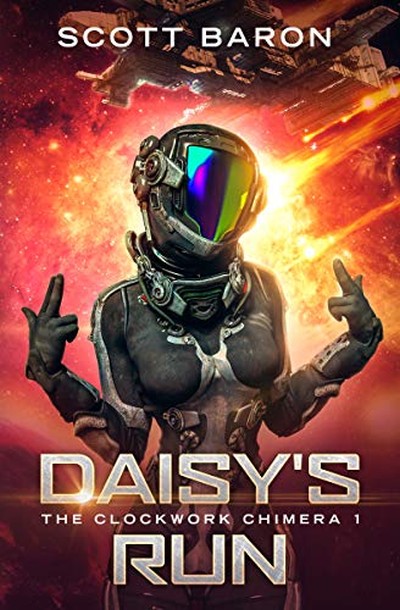 By the time I reached the end of this, what stood out most is how far we had come from the initial scenario. We start way out in deep space, where the crew of the Váli are awoken from their cryo stasis after the ship suffers significant damage as a result of a hull breach. By the end, everything has changed dramatically. The situation back on Earth, the mission of the Váli, and the very nature of the heroine, 25-year-old comms and electronics specialist, Daisy Swathmore, are are all radically different from what they initially seem to be. It’s basically a dramatic arc for the entire human race.
By the time I reached the end of this, what stood out most is how far we had come from the initial scenario. We start way out in deep space, where the crew of the Váli are awoken from their cryo stasis after the ship suffers significant damage as a result of a hull breach. By the end, everything has changed dramatically. The situation back on Earth, the mission of the Váli, and the very nature of the heroine, 25-year-old comms and electronics specialist, Daisy Swathmore, are are all radically different from what they initially seem to be. It’s basically a dramatic arc for the entire human race.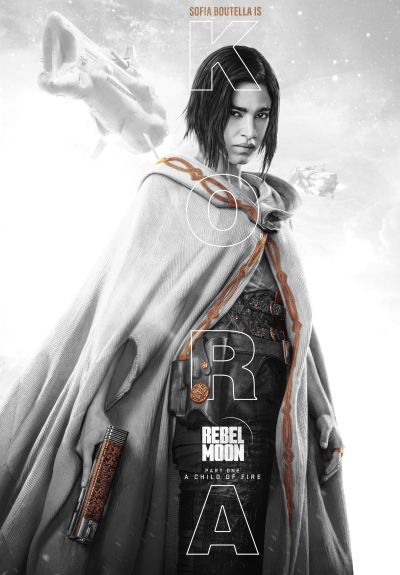 Despite critical derision, this is actually perfectly serviceable pulp SF. Sure, it’s derivative as hell. But the critics getting all huffy about the similarities to Star Wars seem to have forgotten George Lucas only made his film, after failing to acquire the rights to Flash Gordon. This is Snyder’s equivalent to The Fifth Element, in that it’s a long-gestating SF idea, originally conceived well before he became a director. “The Dirty Dozen in space” was the high concept, although there is no denying the SW similarities, especially in the early going. I mean, young orphan on a backwater farming planet gets sucked in to galaxy-hopping adventures, joining a rebellion against an evil empire? Yeah, a little more originality would be welcome.
Despite critical derision, this is actually perfectly serviceable pulp SF. Sure, it’s derivative as hell. But the critics getting all huffy about the similarities to Star Wars seem to have forgotten George Lucas only made his film, after failing to acquire the rights to Flash Gordon. This is Snyder’s equivalent to The Fifth Element, in that it’s a long-gestating SF idea, originally conceived well before he became a director. “The Dirty Dozen in space” was the high concept, although there is no denying the SW similarities, especially in the early going. I mean, young orphan on a backwater farming planet gets sucked in to galaxy-hopping adventures, joining a rebellion against an evil empire? Yeah, a little more originality would be welcome.  A decade after the splattery joy which was
A decade after the splattery joy which was 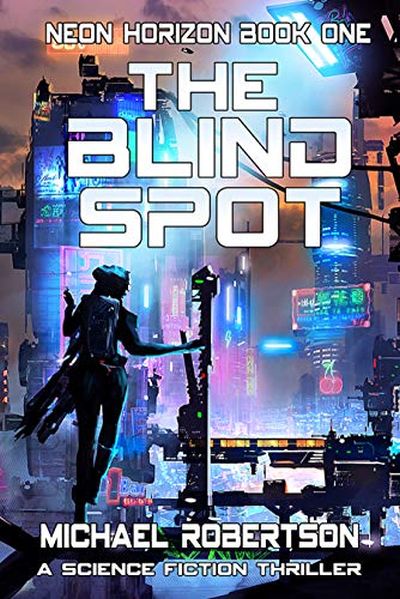 On the surface, Scala City is an idyllic, hi-tech world of prosperity, peace and morality, albeit at the cost of omnipresent surveillance of its residents. But there’s a dirty little secret. The Blind Spot is an area where surveillance is barred, and where the citizens of Scala City go to blow off their sordid steam. Its residents have cybernetically enhanced bodies, something rejected by Scala City, and a zero-tolerance policy for any kind of monitoring. It’s run by Wrench, who has kept his daughter Marcie Hugo under strict control since the death of her mother. However, like all teenagers, the 16-year-old Marcie is seeking to spread her wings, and has been making covert excursions into Scala City, with the aim of moving there some day soon.
On the surface, Scala City is an idyllic, hi-tech world of prosperity, peace and morality, albeit at the cost of omnipresent surveillance of its residents. But there’s a dirty little secret. The Blind Spot is an area where surveillance is barred, and where the citizens of Scala City go to blow off their sordid steam. Its residents have cybernetically enhanced bodies, something rejected by Scala City, and a zero-tolerance policy for any kind of monitoring. It’s run by Wrench, who has kept his daughter Marcie Hugo under strict control since the death of her mother. However, like all teenagers, the 16-year-old Marcie is seeking to spread her wings, and has been making covert excursions into Scala City, with the aim of moving there some day soon.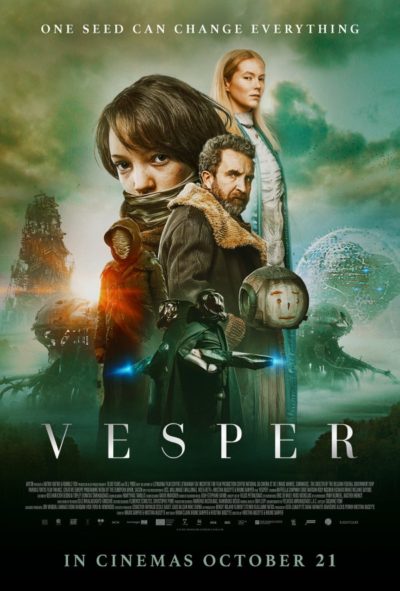 As the above suggests, I was getting a strong manga influence, in particular from the works of Hayao Miyazaki: it feels like the script could have been something he’d have written on a gloomy Wednesday in January. Feisty teenage heroine? Check? Ecological message? Check. For this takes place after some kind of change in the world, which has left the bulk of the population clinging on to existence by their grubby fingernails, in a world now owned by bizarre flora. Vesper (Chapman) is one such, tending to her paralyzed father (Brake) whose consciousness has been transferred into a drone. She trades with her uncle, Jonas (Marsan), swapping blood for the seeds they need to survive.
As the above suggests, I was getting a strong manga influence, in particular from the works of Hayao Miyazaki: it feels like the script could have been something he’d have written on a gloomy Wednesday in January. Feisty teenage heroine? Check? Ecological message? Check. For this takes place after some kind of change in the world, which has left the bulk of the population clinging on to existence by their grubby fingernails, in a world now owned by bizarre flora. Vesper (Chapman) is one such, tending to her paralyzed father (Brake) whose consciousness has been transferred into a drone. She trades with her uncle, Jonas (Marsan), swapping blood for the seeds they need to survive. As the title suggests, this is one of those literary mash-ups, similar to
As the title suggests, this is one of those literary mash-ups, similar to